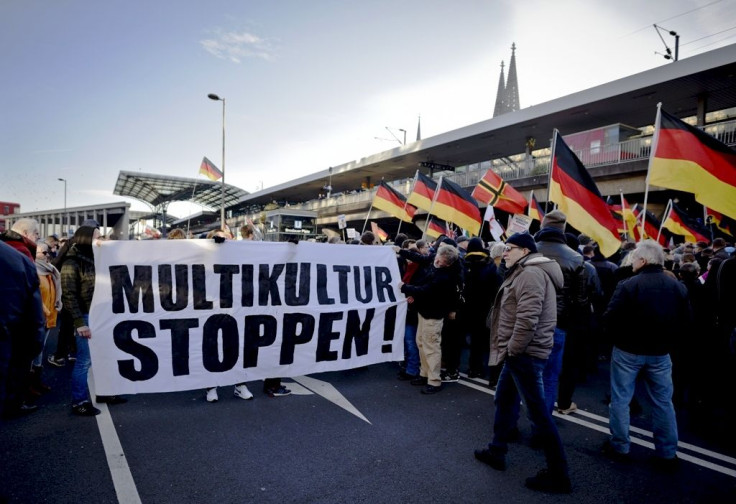Cologne Group Attacks Pakistanis and Syrians Following Sexual Assaults, Pope Francis Tells Europe To Welcome Refugees

A group of about 20 people attacked six Pakistanis and a Syrian late Sunday in the German city of Cologne, where mass sexual assaults took place on New Year’s Eve, police said. The sexual attacks, which caused furor across the country, were allegedly committed by asylum-seekers and over 20 refugees connected to the incident are in police custody.
The Sunday attack took place in Cologne’s city center and injured two of the Pakistanis, police said Monday, Agence France-Presse reported. The police had received reports of "groups of people seeking to provoke" and sent reinforcements to the area on Sunday, according to AFP. The attackers were members of rocker and hooligan gangs who fixed a meeting through Facebook to start a "manhunt" of foreigners in the area, Reuters reported, citing local newspaper Express.
On New Year’s Eve, about 1,000 young men circled women in Cologne, groping — and in one reported case, raping — women. The sexual assaults, which local media claim were carried out by asylum-seekers, triggered anger and criticism for Chancellor Angela Merkel’s welcoming stance toward refugees.
Refugees in Europe have come under scrutiny following the Cologne incidents and the November 2015 Paris attacks earlier, which killed 130 people. Some countries have imposed stricter border controls to stem the influx of asylum-seekers, prompting Pope Francis to urge European nations to welcome refugees even though it risked overwhelming European values and traditions.
In an annual address to diplomats at the Vatican City, Francis said the influx was a major burden for Europe and triggered "significant" fears over security and international terrorism. The pontiff also stated that the huge number of asylum-seekers caused "inevitable problems" and raised concerns about "changes in the cultural and social structures" of host countries.
"All the same, the massive number of arrivals on the shores of Europe appear to be overburdening the system of reception painstakingly built on the ashes of the Second World War, a system that is still an acknowledged beacon of humanity," Francis said, according to AFP. However, Francis said that Europe should welcome refugees without losing “the values and principles of humanity.”
"Europe, aided by its great cultural and religious heritage, has the means to defend the centrality of the human person and to find the right balance between its twofold moral responsibility to protect the rights of its citizens and to ensure assistance and acceptance to migrants," he reportedly said.
© Copyright IBTimes 2024. All rights reserved.












